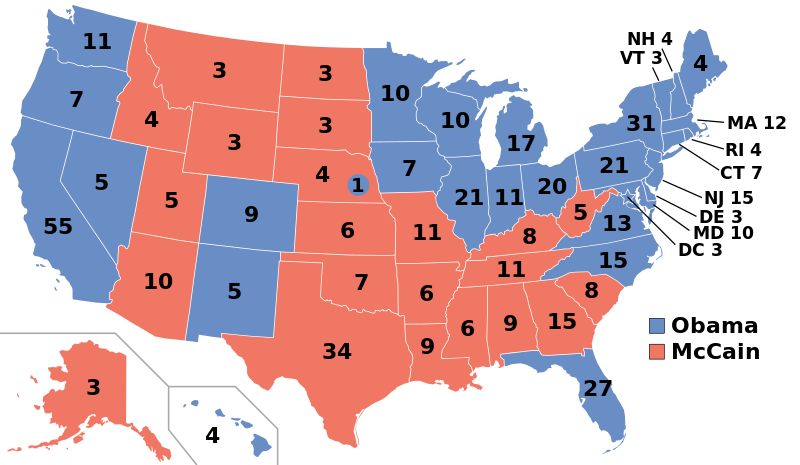What's interesting is that Minnesota voted down an amendment to deny SSM. There is also increasing discussion about allowing SSM there, as well as in California, Illinois, and New Jersey. If these four states were to all end up allowing SSM, then the number of people living in such states would more than double, rising to 113,135,816, or 36.64% of the population.
More interesting still is that the states of Nevada, Oregon, and Wisconsin are eying the allowance for "civil unions" for same-sex couples. If we count these states' populations into the total of places where - for purely governmental purposes of guaranteeing and protecting rights and benefits - same-sex couples would have the rights as heterosexual couples, this would represent 125,354,427 people or 40.60% of the population.
These projections of potential allowances for SSM and civil unions are not my own conjectures - they're from the Economist:
This could mean that - by the next presidential election in 2016 - just slightly more than 40% of the US population could be living in a state where state-sanctioned and state-participatory discrimination against same-sex individuals' right to have a state-recognized, state-protected, and state-guaranteed marriage (or civil union). But a recent poll in Michigan is something that is raising the possibility that it could well be more than 40.60%:
A recent survey found that 56 percent of the state's residents support gay marriage while 39 percent oppose it. Two years ago, 48 percent supported gay marriage and 51 percent were opposed.The walls seem to be tumbling down ... at least away from the Deep South. And if Michigan's shift on this position - along with the shifts seen in Minnesota, Wisconsin, Illinois, Oregon, California, and Maine - is anything to go by, it's likely that the shifting position on gay marriage rights is shifting in the same direction in other states that share some of Michigan's demographic and political leanings: Ohio and Pennsylvania.
If (and that's a big "if") both Ohio and Pennsylvania were to vote to allow SSM or civil unions by 2016, then that could bring the total population living in such states to 159,476,950, or 51.65% of the nation's population (and - of course - if other states vote the same way, then that number can only climb).
Still, let's not assume that all our eggs will hatch, or that all the chicks even grow into chickens. Let's sit down and actually be really friggin' happy that we now have 15.86% of the population living in a state where SSM-rights have been granted. Let's be even more happy that the public tide has turned to much that public referenda are now granting these rights.
As people come to recognize that same-sex couples aren't the monsters that paranoid traditionalists want to make them out to be, there will be more positive shifts in opinion. As people come to recognize that same-sex individuals are among their friends, their colleagues, and their families, there will be more positive shifts in opinion. As people come to recognize that same-sex marriage does not destroy heterosexual marriages, there will be more positive shifts in opinion.As people come to recognize that same-sex partnerships are often about love, commitment, and raising families in a safe and caring environment, there will be more positive shifts in opinion. And, as people come to recognize that the growing number of states that allow same-sex marriages and unions are not turning into burning pits of Hell, that pedophilia is not going rampant, or that divorce rates of heterosexual couples is not increasing, there will be more positive shifts in opinion.


